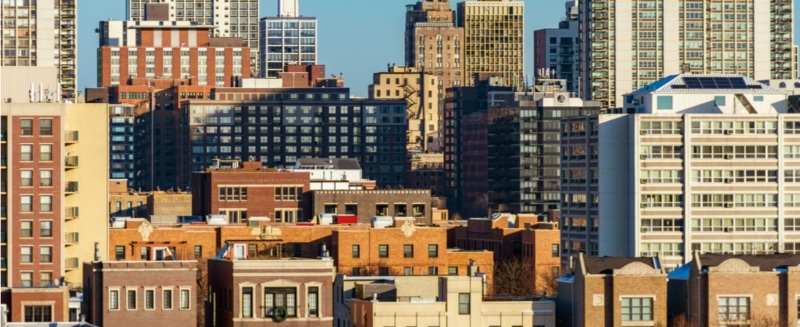Wit
Q: With all the residential development going on in Chicago for the near future, and the many high rises downtown going up, do you think we are in for a buyers market or sellers market for condos in these areas?
Also, where are all the buyers coming from? My wife and I live in the south suburbs and are looking to move back into the city in four or so years when our last kid is on her way to college. Should we start looking now or wait for all the new units to go on the market?
Chicago Residential Real Estate Development
A: What you’ve noticed going on with residential real estate development is happening in many other metro areas around the country. Part of it is generational and part of it is cyclical.
Elected in 1989, Mayor Richard M Daley decided that he would focus on making the City of Chicago a place where you could work, learn, and live. In doing so, he was forecasting the future and the way all generations want to live in metro areas around the country.
Chicago wasn’t the only city to get its act together and redevelop downtown areas for residential living. Today, you can see the same thing in most major metropolitan areas, including Dallas, Boston, Austin, Miami, Charlotte, and Seattle, for example.
Young Generations Affecting Chicago Real Estate
This is the generational part: Millennials and Gen-Zs want to live near where they work. They want to live in diverse areas and they want a lot of conveniences nearby. Millennials who live in urban areas around the country are pushing off buying homes and having children but want space for pets. Cities and close suburbs with larger urban areas meet those needs, especially if you don’t need a lot of room and have a job (or assets) that allow you to pay higher rents (which is what you’re seeing everywhere these days). Many people entering the workforce don’t own cars and don’t want to own cars. They want to be close to their jobs and close to restaurants, mass transportation, their health club and their friends.
Because employees want to live near where they work, many employers are moving back to cities, taking advantage of mass transportation systems that exist to bring employees in from farther-flung suburbs. You’re seeing that in Chicago, too. McDonald’s is moving its headquarters from a western suburb of Chicago to its downtown, as tech companies also congregate there and expand. And cities are encouraging all of this business growth by investing more in their downtown areas to clean them up, beautify them, and ultimately improve aging infrastructure. Examples of this are investments in new or upgrading mass transit systems in Los Angeles, Miami, Washington, D.C., and New York.
All of which is to say that while any one city block or neighborhood might not be doing well, others are.
No matter which generation you belong to, real estate should be thought of as a longer-term investment and you should focus on how you want to live as much as where you want to live. If you’re hoping to stay in this condo for the next 10 to 15 years, you should be fine buying a condo in most urban neighborhoods – provided that the City of Chicago and State of Illinois come to grips with their pension liabilities and tax issues.
If the city and state don’t find a way out of its financial difficulties, it’ll be tough to say what will happen to downtown real estate – except there will be a point where no one will want to own because the cost-benefit relationship will be totally out of whack.
No matter where you want to live, or whether this will be your near-retirement home or forever home, the smartest move you can make is to buy something in an expanding area, close to the downtown, that maybe requires freshening up or even a major remodel and build in some of the value you hope to have. That way, you enjoy a beautiful place to live that allows you to enjoy the dynamism and energy of your urban neighborhood.
When to Invest in Chicago Real Estate
As for buying now or waiting four more years: The answer to that question is fairly complex and requires that you think through a few other things:
- Do you have the cash to buy now? Will this cause other issues for you?
- Do you want to be a landlord? Not everyone does.
- Will you want to move right when your youngest goes to college or after she graduates? (And, how will she feel about that, if that’s a consideration?) If you want to wait, that’s eight years, and unless you want to be a landlord, then you should probably wait to buy something.
- If you’re seeing a lot of cranes in your neighborhood of choice, it doesn’t necessarily mean a lot of condos are coming on the market. A hallmark of this real estate cycle is the building of high-end rentals which are full of amenities. That might mean if you buy a condo to rent out and are competing for tenants, having a nice but lower priced property that still at least breaks even is probably a good investment.
- How long do you want to live in Chicago? Have you thought about retiring elsewhere? Or, are there other job opportunities outside of the city you might consider once you’re done with kids/college? If so, then your world might change in eight years and the last thing you’ll want is to be managing a rental property in Chicago.
If you’re thinking about buying now and using it as a weekend place until it’s time to make the move, we think you should look now (perhaps not terribly seriously). We do believe we’ll have a recession over the next year or two (the party has to end at some point), and if you have the cash, that will be the time to pick up a condo, perhaps for less money, that you can keep and enjoy for the long run.
If that’s the plan, the steps to take are: find a great real estate agent, find the neighborhood in which you’d want to own a place, set aside the cash for a down payment, make sure your credit is in great shape, and get ready to move when the right thing comes along. You can find more help at ThinkGlink.com.
More on real estate trends:
What You Need to Know About Buying a Home in 2019
Real Estate Challenges and Opportunities for 2019
Housing Forecast Highlights You Need to Know for 2019







Leave A Comment